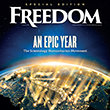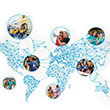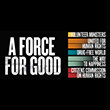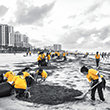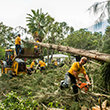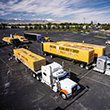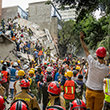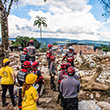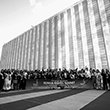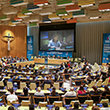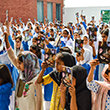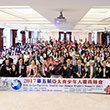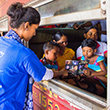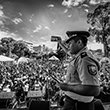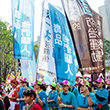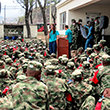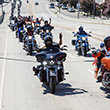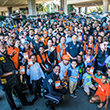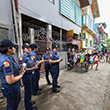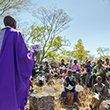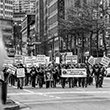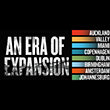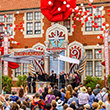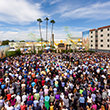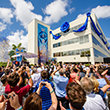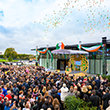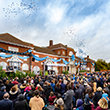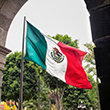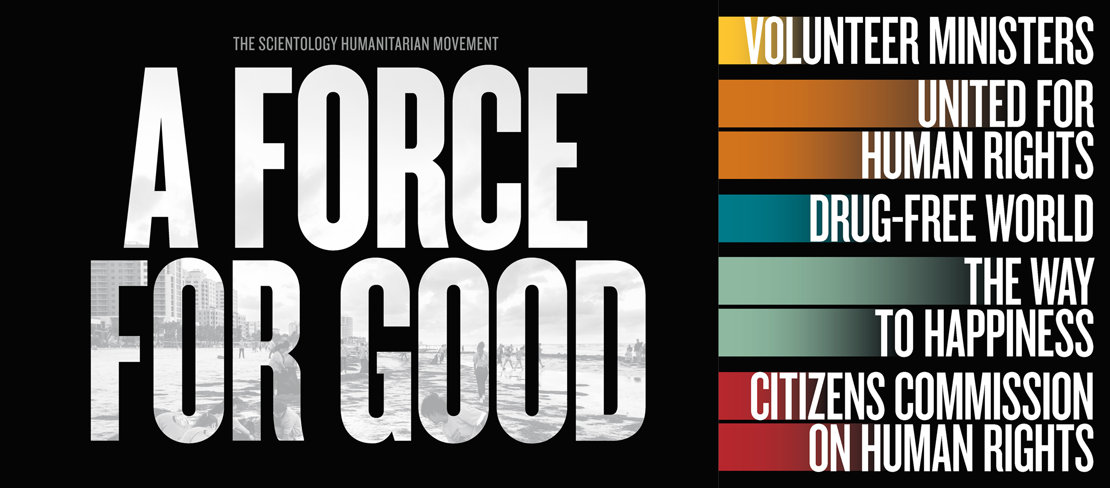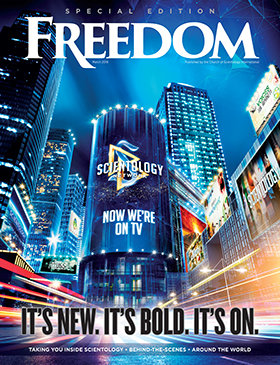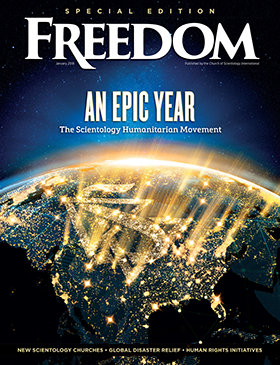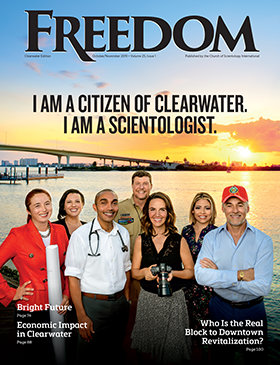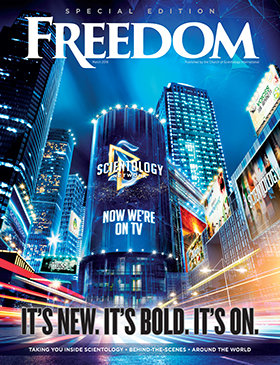The humanitarian work of the Church of Scientology is a fundamental part of its mission to bring about a better world through campaigns on human rights, social justice, literacy, education and disaster relief, and to fight the scourge of drugs, illiteracy, discrimination and religious bigotry.
That work is conducted through eight global humanitarian initiatives, each of which is formed by the values that Scientologists represent and is supported by Church members through their contributions and volunteer efforts. In 2017, those programs made a difference in the lives of millions of individuals around the world; in particular, the Church’s Volunteer Ministers program—one of the largest independent disaster relief forces in the world—distinguished itself broadly in responding to natural disasters that included hurricanes, earthquakes, fires and floods, bringing relief to tens of thousands affected by those events. From protecting neighbors and businesses when Hurricane Irma hit Clearwater, Florida, to responding to devastating storms in Texas, the Caribbean and Puerto Rico, or providing aid during Mexico City’s earthquakes and fires in the western U.S., the VMs helped untold thousands recover from the impact of those events.
While the Volunteer Ministers’ efforts drew extensive public attention and praise from a world focused on disaster recovery, the many other humanitarian programs of the Church were also at work promoting social betterment programs for a safer, more peaceful society.
The Foundation for a Drug-Free World—the world’s largest nongovernmental drug information and prevention organization—distributed 19 million booklets and videos during the year on the Truth About Drugs. That work drew enthusiastic responses from law enforcement and citizen groups in the U.S., Europe, and Latin and South American nations. One such organization, the National Police of Ecuador, inspired by the drug education program, organized a national race that led to 86,000 pledges to reject illicit drugs.
Two Los Angeles-based international nonprofits, United for Human Rights and its subsidiary program, Youth for Human Rights, conducted widespread distribution campaigns during the year to educate millions around the world about the United Nations Universal Declaration of Human Rights. And The Way to Happiness—L. Ron Hubbard’s common sense guide to moral values, organized under The Way to Happiness Foundation—was placed in the hands of millions more to help promote respect and civil discourse in nations where strife and survival are common concerns. In the Philippines last year, for example the 21 precepts of The Way to Happiness were used to help mitigate vigilante responses to drug dealing that had resulted in government-endorsed extrajudicial killings.
The year was also vividly marked by the work of the Citizens Commission on Human Rights (CCHR), an international mental health watchdog group that has expanded to include more than 170 chapters worldwide. CCHR and its staff and volunteers have contributed resources that include liaisons with media, production of documentaries, educational publications and exhibits to bring to public scrutiny mental health abuses—including criminal offenses—and to promote legislation to curb such abuse. In a number of cases, CCHR volunteers exposed misconduct by psychiatrists and psychiatric hospitals, bringing about legislation to halt abusive practices.
The efficacy of these efforts has been demonstrated repeatedly over the history of the Church’s humanitarian work, and in 2017 once again established new levels of commitment from Scientologists in their dedicated service to mankind.

